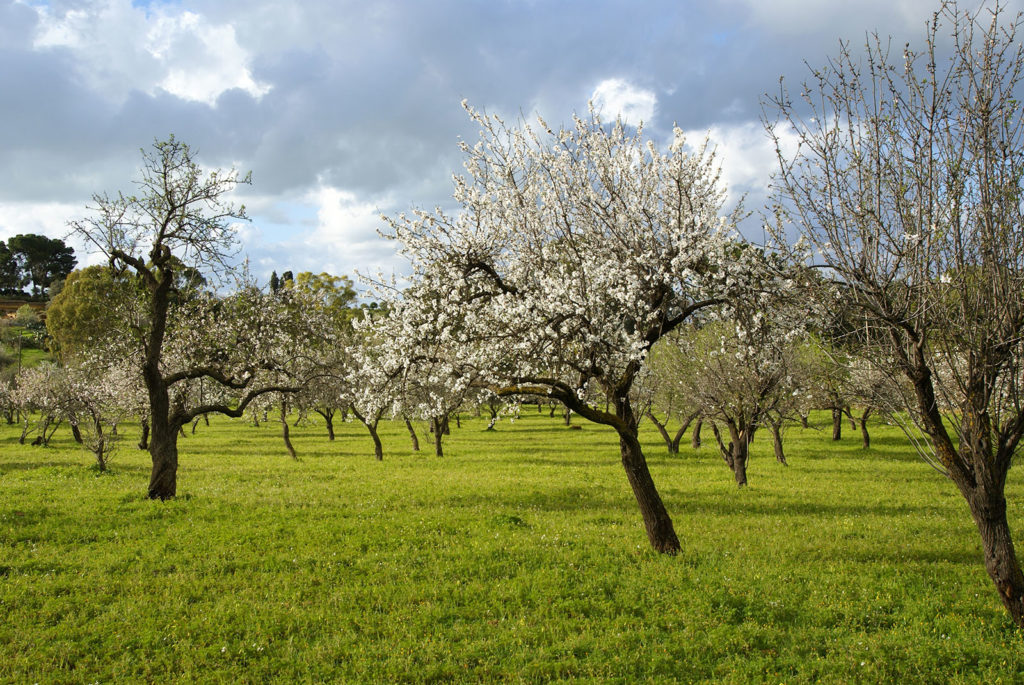At the Park of the Valley of the Temples, archaeological excavations conducted over time have found
almond
seeds in layers of earth from the late antiquity, highlighting how almonds are linked to the territory of Agrigento.
In order to protect the area’s different varieties, in 1997 the Museo Vivente del Mandorlo (Living Almond Museum) was established. At the foot of the hill of the
Temple of Hera Lacinia
, around 200 different species grow, which the experts of the Faculty of Agriculture of the University of Palermo study every day to understand and protect their biodiversity.
 The main purpose of the Living Almond Museum is to keep the oldest varieties of almonds alive, since they are in danger of disappearing.
The main purpose of the Living Almond Museum is to keep the oldest varieties of almonds alive, since they are in danger of disappearing.
In addition to this, researchers continue to examine the different specimens to understand which types are best for various purposes, for example, which almonds might be suitable for famous Sicilian confectionery, where this ingredient is found in abundance.
Torrone, amaretti and frutta martorana are just a few examples of the delicious Sicilian sweets that use this sweet ingredient.